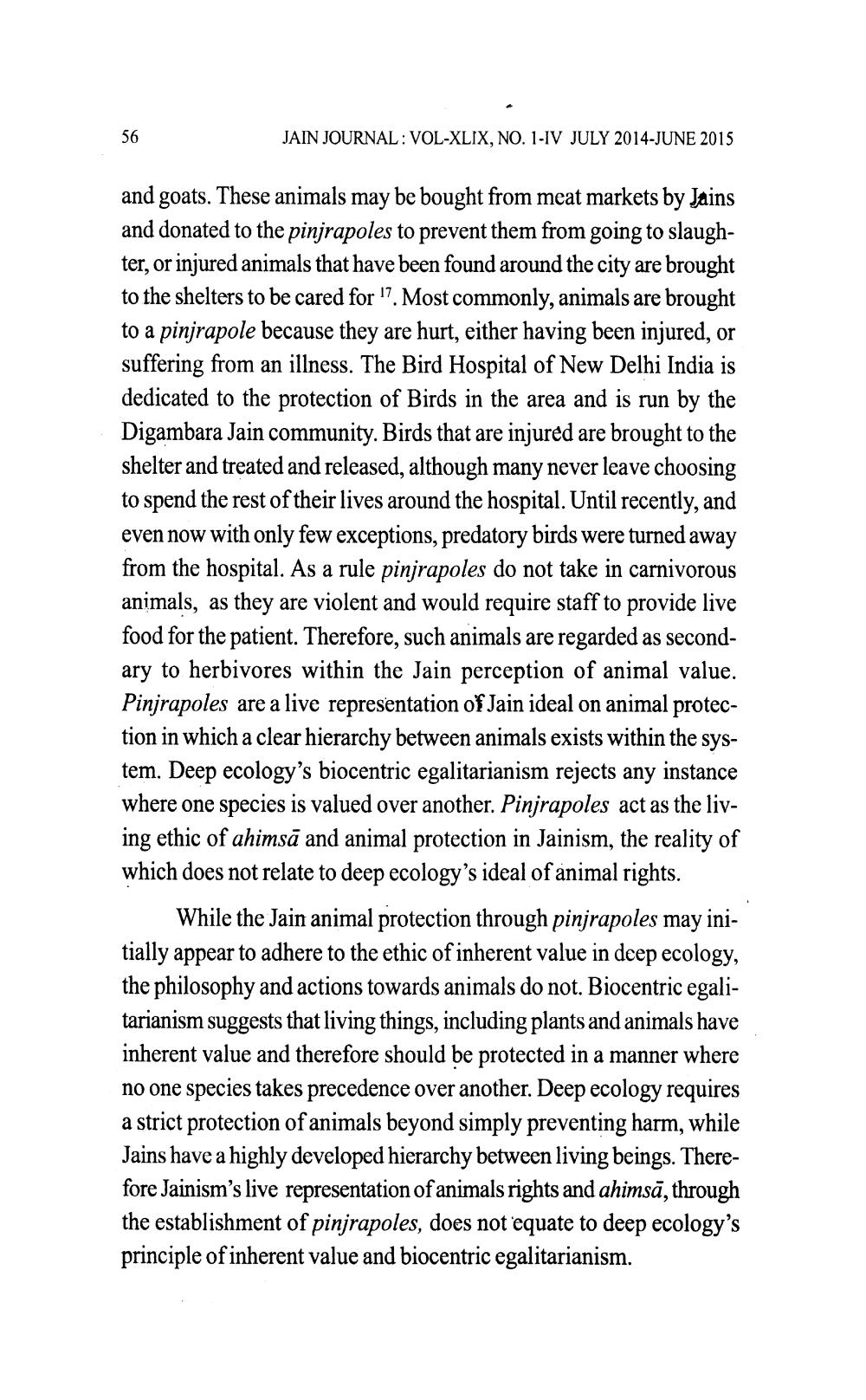________________
JAIN JOURNAL: VOL-XLIX, NO. 1-IV JULY 2014-JUNE 2015
and goats. These animals may be bought from meat markets by Jains and donated to the pinjrapoles to prevent them from going to slaughter, or injured animals that have been found around the city are brought to the shelters to be cared for '7. Most commonly, animals are brought to a pinjrapole because they are hurt, either having been injured, or suffering from an illness. The Bird Hospital of New Delhi India is dedicated to the protection of Birds in the area and is run by the Digambara Jain community. Birds that are injured are brought to the shelter and treated and released, although many never leave choosing to spend the rest of their lives around the hospital. Until recently, and even now with only few exceptions, predatory birds were turned away from the hospital. As a rule pinjrapoles do not take in carnivorous animals, as they are violent and would require staff to provide live food for the patient. Therefore, such animals are regarded as secondary to herbivores within the Jain perception of animal value Pinjrapoles are a live representation of Jain ideal on animal protection in which a clear hierarchy between animals exists within the system. Deep ecology's biocentric egalitarianism rejects any instance where one species is valued over another. Pinjrapoles act as the living ethic of ahimsā and animal protection in Jainism, the reality of which does not relate to deep ecology's ideal of animal rights.
While the Jain animal protection through pinjrapoles may initially appear to adhere to the ethic of inherent value in deep ecology, the philosophy and actions towards animals do not. Biocentric egalitarianism suggests that living things, including plants and animals have inherent value and therefore should be protected in a manner where no one species takes precedence over another. Deep ecology requires a strict protection of animals beyond simply preventing harm, while Jains have a highly developed hierarchy between living beings. Therefore Jainism's live representation of animals rights and ahimsā, through the establishment of pinjrapoles, does not 'equate to deep ecology's principle of inherent value and biocentric egalitarianism.




